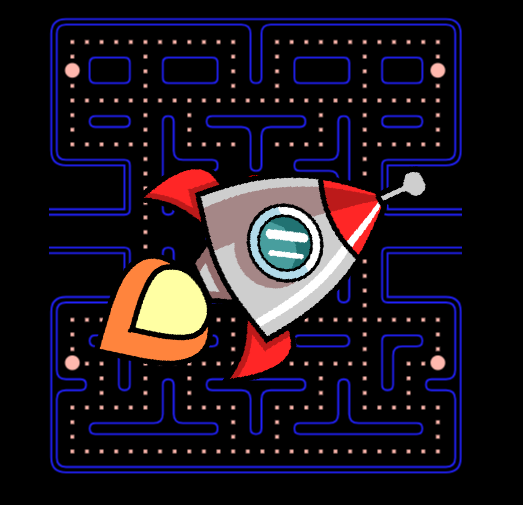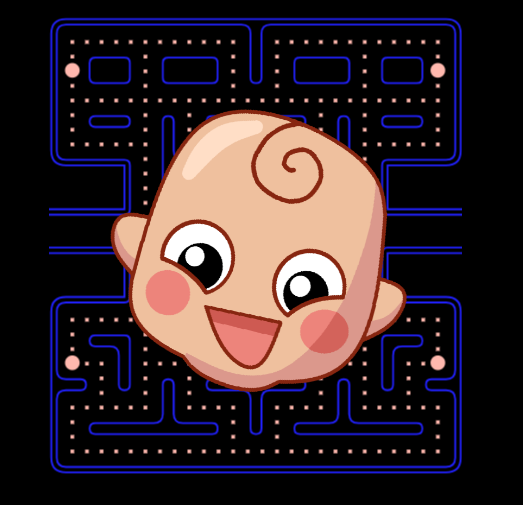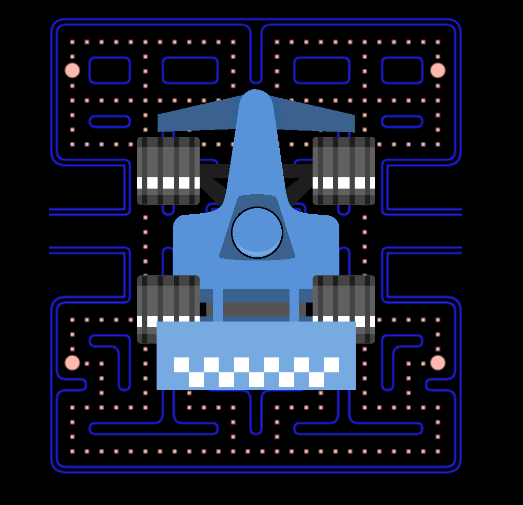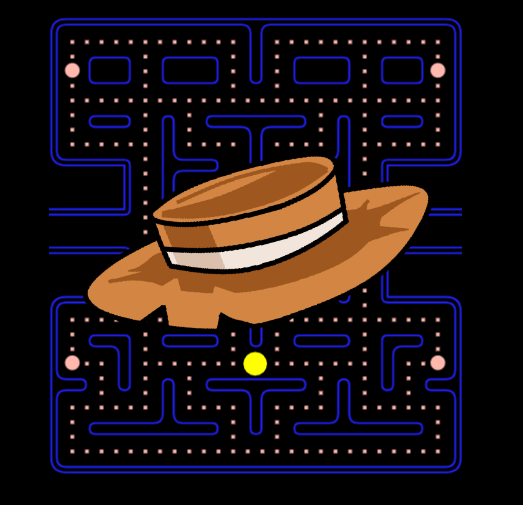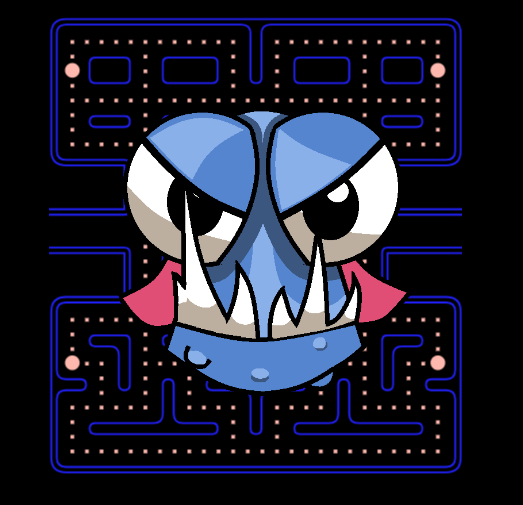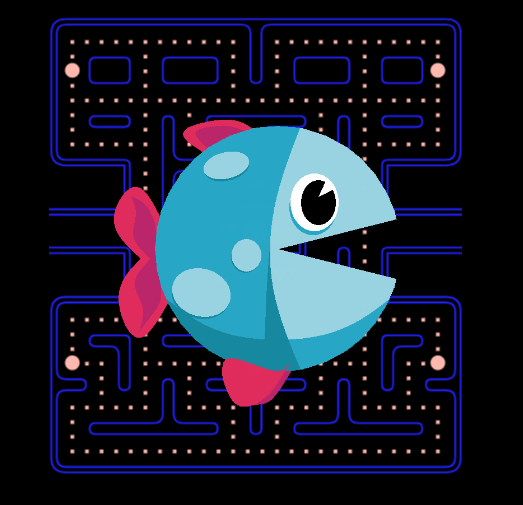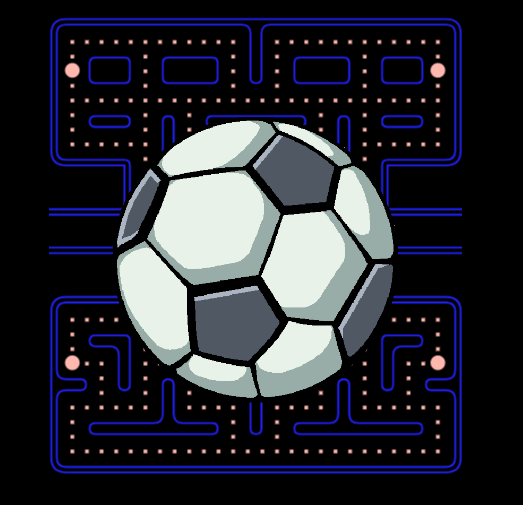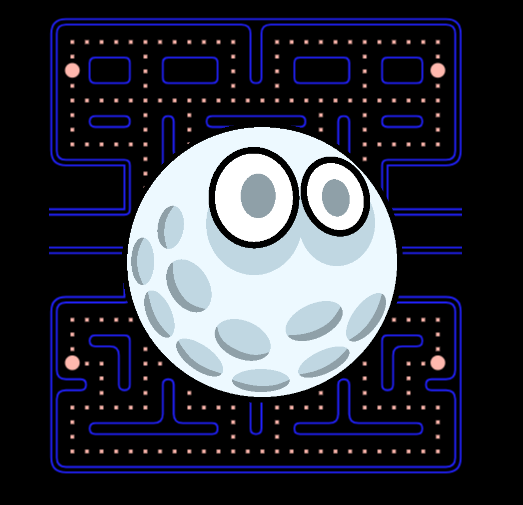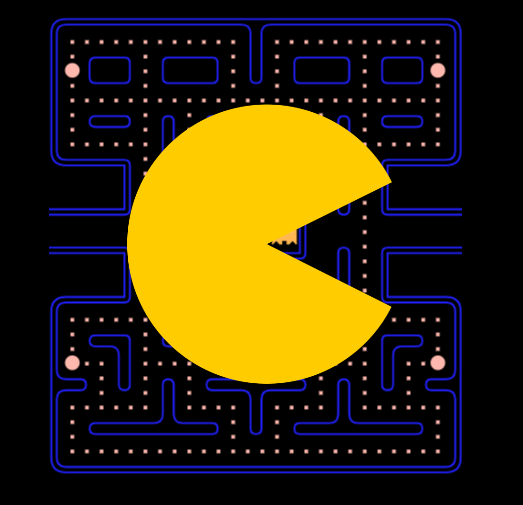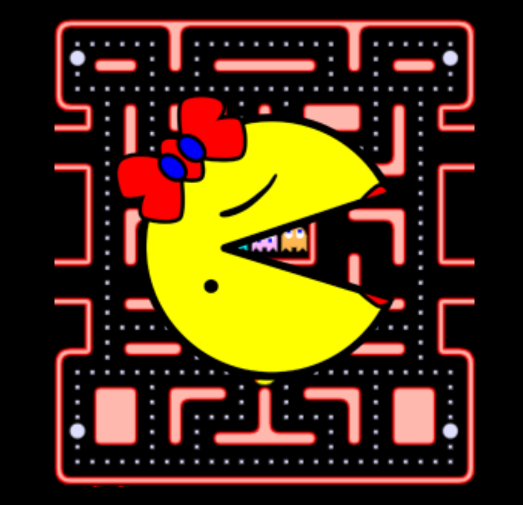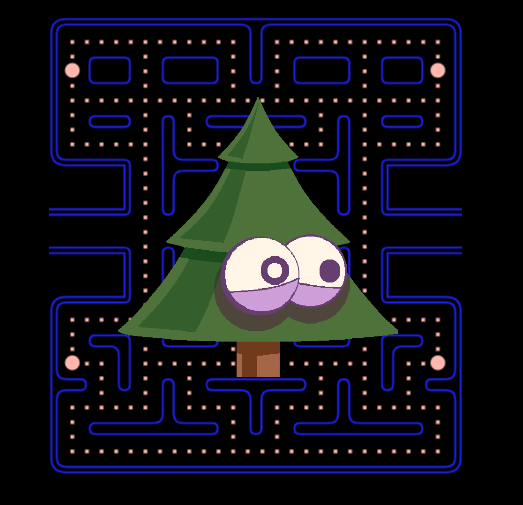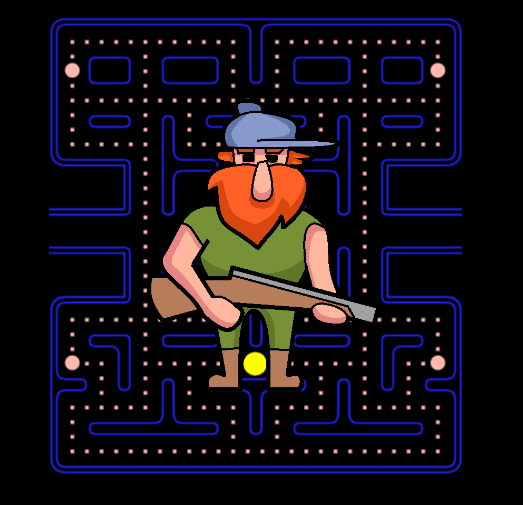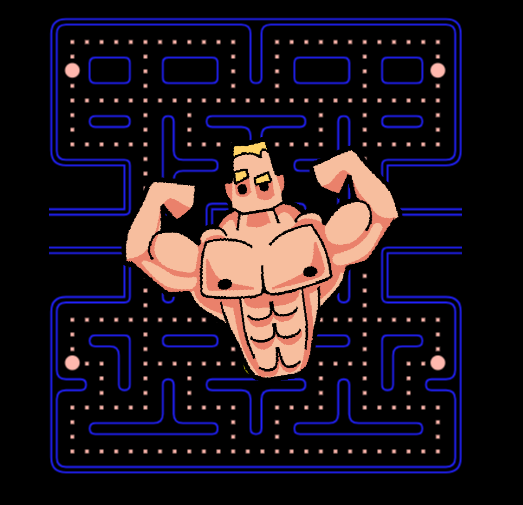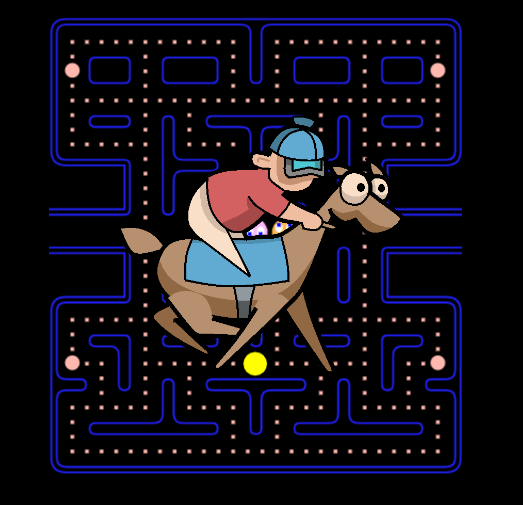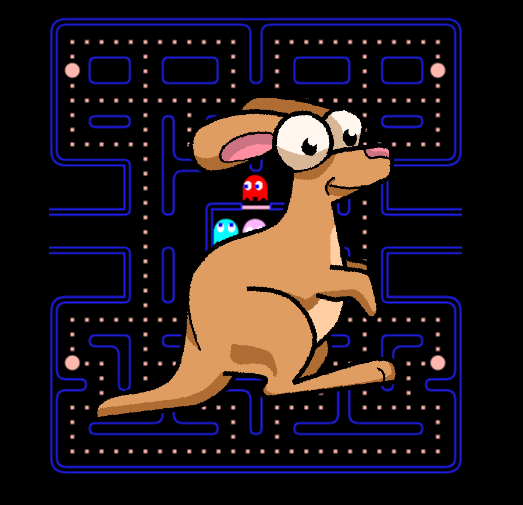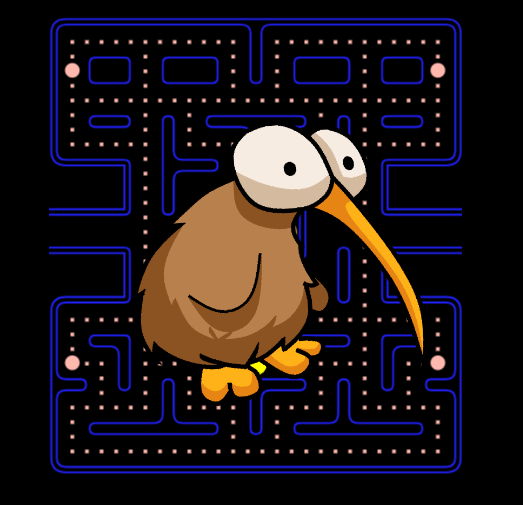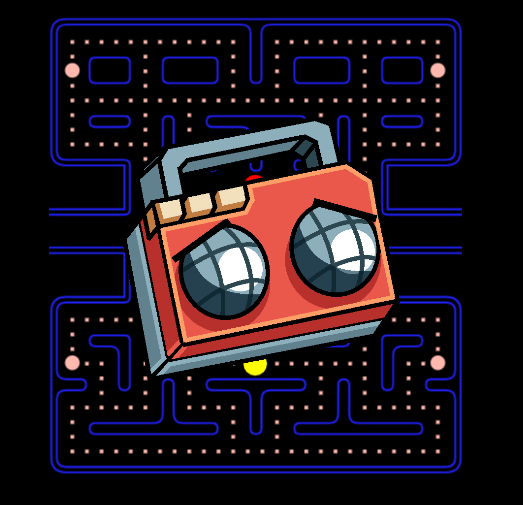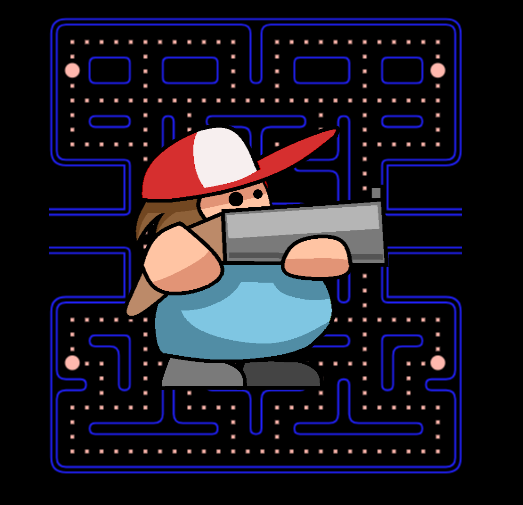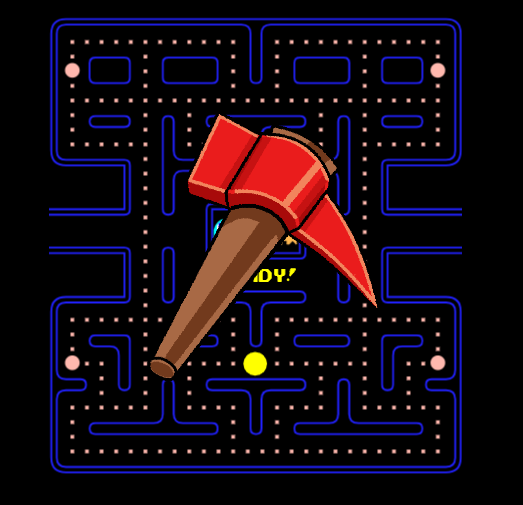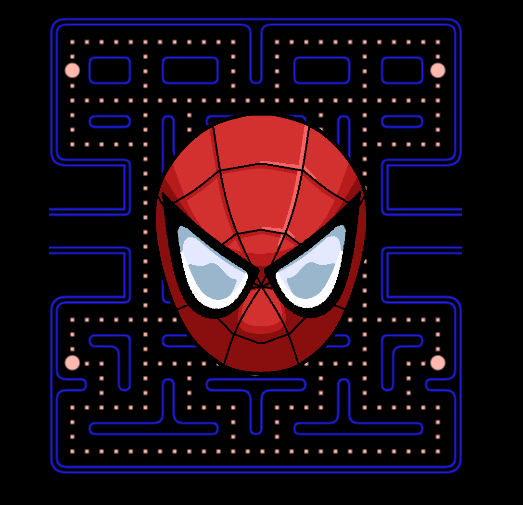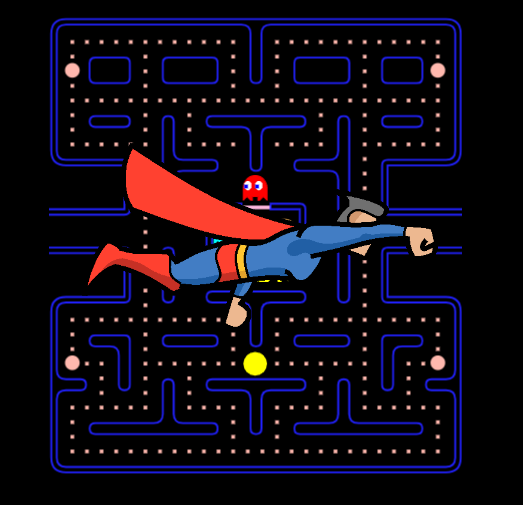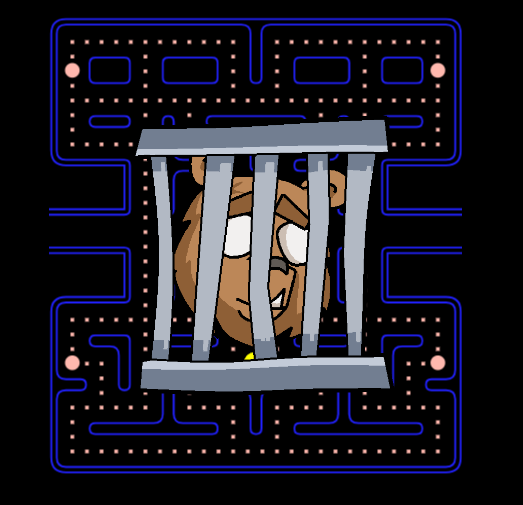Cool Pacman Games
Cool Pacman is for pacman lovers - only that instead of the traditional pacman theme, we have created some new, unique pacman games, like: Kiwi man, Kangaroo man, Redneck man, Green man and many others. Just choose the theme that you like, and have fun!
How to play Pacman?
You need to navigate Pacman through a maze containing various dots while four multi-colored ghosts: Blinky, Pinky, Inky and Clyde - try to get you. The goal of the game is to accumulate points by eating all the dots in the maze, completing that 'stage' of the game and starting the next stage and maze of Pac-dots. Between some stages, one of three intermission animations plays. The four ghosts roam the maze hunting for you. If any one of the ghosts touches you, a life is lost; when all lives have been lost, the game is over. Pacman is awarded a single bonus life at 10,000 The number of lives can be set to one life only or up to five lives maximum.
Near the corners of the maze are four larger, flashing dots known as Power Pellets that provide pacman with the temporary ability to eat the ghosts and earn bonus points. The enemies turn deep blue, reverse direction and usually move more slowly. When an enemy is eaten, its eyes remain and return to the center box where the ghost is regenerated in its normal color. Blue enemies flash white to signal that they are about to become dangerous again and the length of time for which the enemies remain vulnerable varies from one stage to the next, generally becoming shorter as the game progresses. In later stages, the enemies go straight to flashing, bypassing blue, which means that they can only be eaten for a short amount of time, although they still reverse direction when a power pellet is eaten; starting at stage nineteen, the ghosts do not become edible (i.e., they do not change color and still make Pacman lose a life on contact), but they still reverse direction. There are also fruits, located directly below the center box, that appear twice per level; eating one of them results in bonus points (between 100 to 5,000 points).
About Pacman
Pacman (Japanese: パックマン Hepburn: Pakkuman) is an arcade game originally developed by Namco and first released in Japan in May 1980. It was created by Japanese video game designer Toru Iwatani. It was licensed for distribution in the United States by Midway Games and released in October 1980. Immensely popular from its original release to the present day, Pacman is considered one of the classics of the medium, and an icon of 1980s popular culture. Upon its release, the game—and, subsequently, Pacman derivatives—became a social phenomenon that yielded high sales of merchandise and inspired a legacy in other media, such as the Pacman animated television series and the top-ten Buckner and Garcia hit single "Pacman Fever". Pacman was popular in the 1980s and 1990s and is still played in the 2010s.
When Pacman was released, the most popular arcade video games were space shooters—in particular, Space Invaders and Asteroids. The most visible minority were sports games that were mostly derivatives of Pong. Pacman succeeded by creating a new genre. Pacman is often credited with being a landmark in video game history and is among the most famous arcade games of all time. It is also one of the highest-grossing video games of all time, having generated more than $2.5 billion in quarters by the 1990s.
The Pacman character has appeared in more than 30 officially licensed game spin-offs, as well as in numerous unauthorized clones and bootlegs. According to the Davie-Brown Index, Pacman has the highest brand awareness of any video game character among American consumers, recognized by 94 percent of them. Pacman is one of the longest running video game franchises from the golden age of video arcade games. It is part of the collection of the Smithsonian Institution in Washington, D.C. and New York's Museum of Modern Art.
Pacman blog items

 Get free games updates:
Get free games updates:
